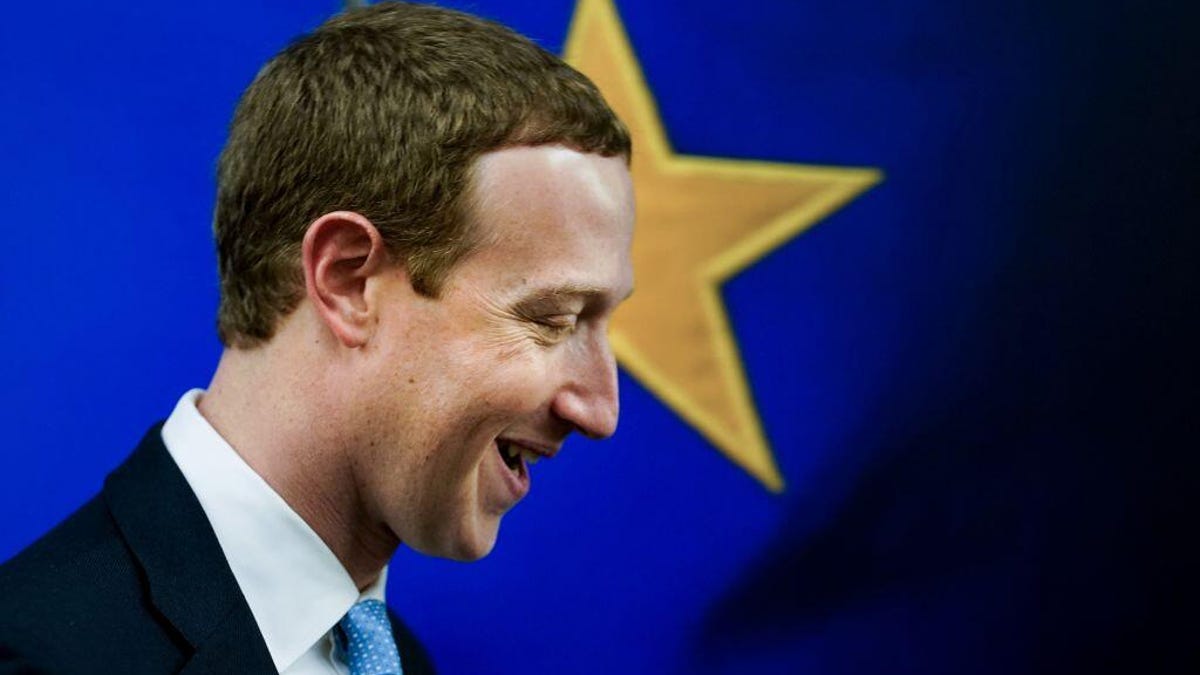Zuckerberg: A post-COVID digital deal between tech, governments is 'inevitable'
The pandemic is forcing tech giants and governments to find new ways to work together, which could affect their future relationships.

The Facebook CEO says he doesn't think there's any question about whether there's going to be regulation.
As we begin to dare to start thinking about life after COVID-19, it becomes apparent it'll be different in all sorts of ways, with little left untouched.
One consequence the coronavirus pandemic could have on the technology industry is the ushering in of a new era of partnerships between tech companies and governments as a way to design regulation. These partnerships would rely on lessons learned during the crisis to establish a framework for working through complex issues, such as content moderation and data portability.
One believer in a new post-COVID digital deal between tech and governments is Facebook CEO Mark Zuckerberg .
"I just think it's inevitable," said Zuckerberg during a livestreamed debate with European Commissioner Thierry Breton on Monday. "I don't think there's going to be a question about whether there's going to be regulation," the CEO said. "The question is, whose framework is going to win around the world?" The debate was hosted by think tank the Center on Regulation in Europe.
Zuckerberg outlined what he sees as two models emerging for deals between tech and governments with "two very different sets of values." One of these models is coming out of more democratic countries, he said, and one is coming from China, which gives governments more control and forces companies to localize data with less of an emphasis on human rights.
"I think that's really dangerous and I worry about that kind of model spreading to other countries," he said. As an "antidote" he'd like to see a strong regulatory model emerge from Western democracies that can attract countries on the fence, Zuckerberg said.
The CEO didn't explicitly say he expected the framework to emerge from Europe, but noted that he appreciated the strong lead the EU had taken on regulation. "When Europe sets policies they often become the standards around the world," he said, pointing to the General Data Protection Regulation, or GDPR, introduced two years ago to bring the bloc's privacy rules up to date for the digital age.
Zuckerberg said that during the pandemic he's seen the increased need for partnerships, and he envisages those in the future would be based on a mix of cooperation and regulation. He added that in his experience, it's easier to work more effectively with governments that are more engaged with technology and have made an effort to understand the nuances of platforms.
Working together throughout the coronavirus crisis has tested the ability of big platforms to work with governments at speed. Breton said during the debate that he was impressed with the response of big platforms -- including Facebook, YouTube and Netflix --which all reduced the resolution of videos to free up bandwidth across Europe within 24 hours of him asking.
"We learn day after day so far during the last two months how to work together while respecting who we are," Breton said. "It makes me more positive that the less I regulate the better it will be, because then I know we will be able to change and adapt things which are more important faster. But at the end of the day, if we cannot find a way, we will regulate of course."

